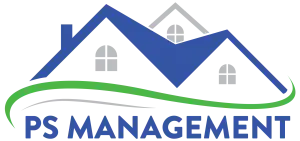Navigating the Corporate Transparency Act: A Guide for HOA Board Members
What is the Corporate Transparency Act?
The Corporate Transparency Act is a federal measure aimed at increasing transparency to prevent financial crimes such as money laundering and tax evasion. It requires community associations, including HOAs and Condo associations, to report beneficial ownership (community voting interest) information to the Financial Crimes Enforcement Network (FinCEN). This information includes legal names, addresses, dates of birth, and ID numbers of individuals who serve on the board of directors.
Key Responsibilities Under the Corporate Transparency Act
Understanding the Reporting Requirements
- The CTA requires community associations to report beneficial ownership details, including legal names, addresses, dates of birth, and ID numbers of individuals with substantial control or ownership stake or in this case have majority voting stake
Compliance Commitment
- Compliance includes regular updates to the reported information, especially after changes in ownership, with a strict timeline of one year for updating these details. Non-compliance can result in significant fines reaching up to $500 per day and criminal penalties for deliberate violations .
Implementing Internal Controls
- Boards should establish procedures and controls to manage the CTA requirements efficiently. Engaging with legal advisors and utilizing professional property management services can ensure seamless compliance with the Act’s stipulations .
Relying on Professional Management
- By partnering with a management company such as PS Property Management, board members may benefit from expertise and structured processes in place to manage these new reporting requirements effectively .
Common Questions and Answers
Q1: Is the Corporate Transparency Act a permanent requirement?
While the CTA is currently effective, its permanency is yet to be clarified. Efforts by CAI Legal Team are ongoing to demonstrate the redundancy of these steps for the community association industry, hoping to drive changes that align with sector-specific needs. It is our hope that the CAI legal teams can eventually get HOA’s and Condo Associations removed from these requirements. For now, it is here and we are going to ensure all of our association clients are 100% compliant.
Q2: What happens if our association fails to comply?
Non-compliance with the CTA can lead to severe civil penalties, including fines that accumulate daily, and possibly criminal charges. It’s crucial to adhere strictly to the mandated reporting requirements and update any changes promptly to avoid such consequences.
Q3: Are board members individually responsible for reporting?
Yes, it is typically the responsibility of the board members to ensure that the association complies with these reporting requirements. Establishing internal processes to manage this responsibility can help streamline compliance and protect individual board members from shared liability. Not to worry however. PS Management has the entire process covered to protect all of our HOA board members from any issues regarding compliance. We have woven the CTA into our internal processes and will make the necessary updates as Board Members change over time.
Q4: Does this affect the way we manage our finances?
No. The CTA focuses on ownership transparency rather than direct financial management. However, financial transparency remains a critical component of good governance and supports compliance with broader legal standards by establishing credibility and trust with your community.
In conclusion, while the Corporate Transparency Act introduces new challenges for HOA and Condo board members, understanding its requirements and implementing robust compliance strategies will mitigate potential risks and ensure your community operates within the legal framework. PS Management will help navigate through all aspects of the CTA for our associations and any other legal changes or requirements that come our way.
The Corporate Transparency Act may present new compliance challenges for HOA and Condo board members, but understanding the Act’s requirements, implementing effective strategies, and partnering with professional management services will mitigate risks and secure legal compliance. PS Management stands ready to assist associations in navigating this and any future legal landscapes, reinforcing our commitment to client success through expertise and innovative solutions.
